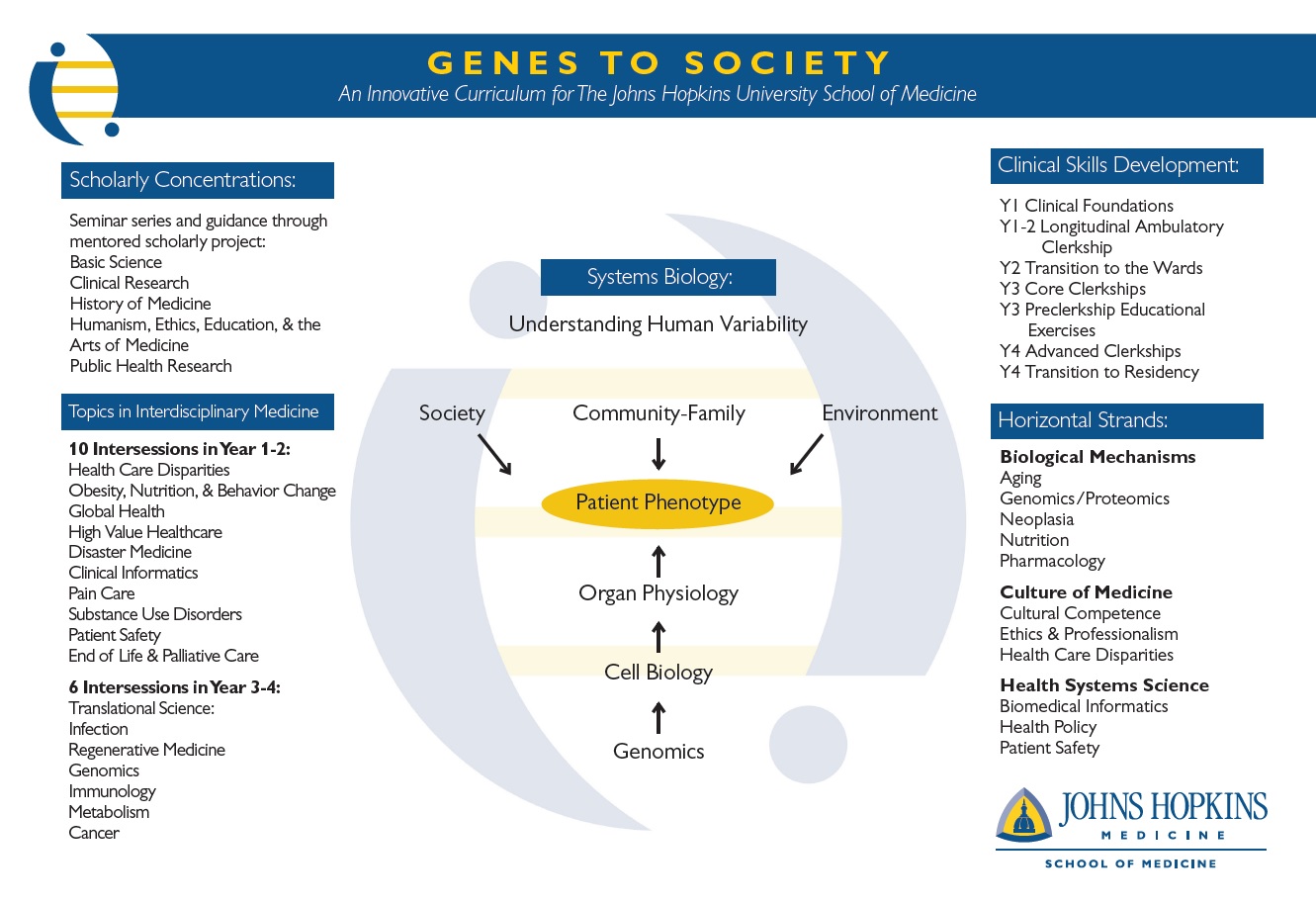Courses and Clerkships
Genes to Society curriculum presents a new model of health and disease based on the principles of adaptation to the environment, variability of the genotype and stratification of risk, rather than simply a dichotomous view of “normal human biology (health)” and “abnormal physiology (disease)."
The curriculum focuses on the patient as an individual. Students are asked to conceptualize the individual in the context of a continuum from normal to pre-disease to disease states. This format provides a framework to analyze the array of factors -- including individual genetic, environmental and socioeconomic characteristics -- that would influence the patient’s disease presentation.
The Genes to Society Curriculum prepares our students to look at both a patient's biology down to the cellular level -- in other words, not just organs, but tissues, cells, proteins and DNA -- and dovetail that with external environmental and societal factors to truly come up with an accurate differential diagnosis and effective treatment plan. This is especially important for patients dealing with chronic illnesses, an area of medicine long overlooked.

View a PDF version of the curriculum overview.
Instead of consecutive courses of rote learning that often isn’t applied clinically until months or years later, each course, each concept, is concurrently reinforced with clinical experience. In this way learning becomes three-dimensional, and the natural question many students ask -- "Why does this matter?" -- is answered through patient interaction from the first day they step into class.
This constant “horizontal” application of academic principles and critical thinking to the clinical setting continues throughout the educational experience, building a confidence level in our graduates that gives them an outstanding foundation for their residencies.
